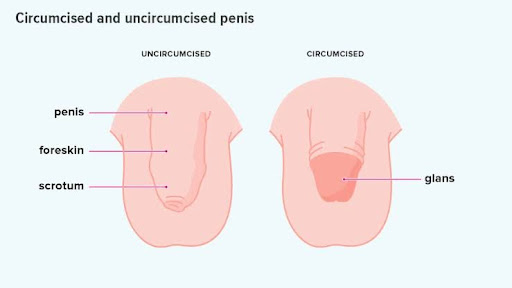Pros and Cons of Newborn Circumcision
Newborn circumcision, the surgical removal of the foreskin from the penis, has been a topic of debate and discussion for many years. The decision to circumcise a newborn is personal, often influenced by cultural, religious, and medical factors. While some parents choose circumcision for their sons, others opt not to. In this blog, we will explore the pros and cons of newborn circumcision to help parents make an informed decision.
Pros of Newborn Circumcision
- Reduced Risk of Urinary Tract Infections (UTIs): Circumcised infants have a lower risk of UTIs, especially in their first year of life, which can be severe and lead to kidney damage or sepsis.
- Decreased Risk of Contracting HIV and Other STIs: While circumcision doesn’t prevent all sexually transmitted infections, it can reduce the risk of contracting HIV and certain other diseases transmitted via sexual contact.
- Lower Risk of Skin Conditions: Circumcision decreases the risk of penile skin conditions, such as phimosis, where the foreskin is too tight. Additionally, older children or adults may need circumcision to treat these conditions as well.
- Decreased Risk of Penile and Cervical Cancer: Circumcised men have a lower risk of penile cancer, although this cancer is already rare. Moreover, their female partners have a reduced risk of cervical cancer.
- Improved Genital Hygiene: Many boys and men find it easier to maintain good genital hygiene after circumcision. However, teaching proper hygiene is essential, whether the foreskin is present or not.
- No Impact on Sexual Sensation: Research has shown no significant impact on sexual sensation or pleasure due to circumcision. Some studies have even suggested an increase in sexual sensitivity for circumcised men.

Cons of Newborn Circumcision
- Pain and Discomfort: The surgical procedure can be painful for the infant, even with anesthesia. Subjecting a newborn to unnecessary pain may be seen as unethical.
- Cultural and Ethical Concerns: Critics argue that circumcision should be a personal choice made by the individual later in life, respecting their autonomy, and raising ethical concerns about performing it on a newborn.
- Varied Medical Opinions: The medical community holds divergent views on circumcision. Some, like the American Academy of Pediatrics, emphasize the benefits of circumcision. Others, such as the Canadian Paediatric Society, maintain a more neutral stance, stressing the importance of informed parental decision-making. Parents should consider these varying perspectives when making their choice.
Risks of the Procedure
While circumcision is generally a safe procedure, there are risks, as with any surgery. The potential risks include:
- Excessive Bleeding at the Time of the Procedure
- Infection
- Pain/Discomfort
- Damage or Deformity to the Penis: Rarely, complications such as damage or deformity may appear later in development. The chances are extremely low, and often occur outside of hospital settings. It’s essential to note that these risks are minimal when a trained medical professional performs this procedure in a sterile environment.
Though rare, these complications can cause physical and emotional distress to both the infant and the parents.
Author

Tithi Karmakar
Tithi (she/he/they) is your friendly neighborhood Genderfluid, panromantic demisexual. Primarily focused on gender, caste, and sexuality studies. Currently Pursuing M.A. in Philosophy and MAJMC, they are dedicated to researching and writing on these topics, wholeheartedly embracing the joy of continuous learning.
Browse by Category
